Kabale University Champions Innovation at National ICT-IP Guidelines Dissemination Workshop
Kabale, Uganda – April 23, 2029 — Kabale University today reaffirmed its role as a leader in academic innovation and regional development by hosting the National ICT-IP Guidelines Dissemination Workshop — a pivotal initiative aimed at empowering researchers, universities, and entrepreneurs to effectively protect and commercialize their innovations through robust Intellectual Property (IP) systems. This stems from the fact that Kabale University is the designated host of a regional ICT innovation hub, particularly for the Western region of Uganda, as outlined in the Ministry of ICT and National Guidance’s agreement with the university. This hub aims to promote innovation and technological advancement in the region, fostering new solutions and empowering the local community.
The high-impact workshop, held at the university’s main campus, drew a distinguished delegation from the Uganda Registration Services Bureau (URSB), the Ministry of ICT and National Guidance, and the Japan International Cooperation Agency (JICA) — the event’s primary sponsor under the ICT UJ-Connect (Uganda-Japan Connect) initiative.
Welcoming the guests, the Deputy Vice Chancellor for Academic Affairs emphasized the need for stronger inter-university partnerships in the face of shared challenges.
“We face similar obstacles, and often, the solutions are within our collective reach,” she said. “From Kabale to Mountains of the Moon University, we must unite in pursuit of one goal — transforming innovations into impact, and protecting them with clear, actionable IP frameworks.”
Her remarks highlighted a broader call for national collaboration in building knowledge economies powered by research, innovation, and protected intellectual assets.
Kabale University has become a fertile ground for innovations across multiple disciplines. However, as the Deputy Vice Chancellor candidly acknowledged, the university faces a common challenge: a lack of visibility and protection for its innovations.
“Our researchers are building solutions that could revolutionize communities — but without strong IP protection, they risk being stolen or lost. That’s why this workshop is both timely and crucial for our innovation ecosystem.”
 Delivering the keynote, Mr. Bob Lumu, Senior Officer at URSB’s Technology and Innovations Support Center, applauded Kabale University’s proactive role in advancing Uganda’s innovation agenda.
Delivering the keynote, Mr. Bob Lumu, Senior Officer at URSB’s Technology and Innovations Support Center, applauded Kabale University’s proactive role in advancing Uganda’s innovation agenda.
He recounted a shift in URSB’s operations — from relying on foreign-developed systems to adopting locally developed solutions.
“Two years ago, a team of Ugandan software developers created a business registration platform. Previously, we depended on a UK-based system, which was costly and inefficient. That homegrown solution needed — and deserved — IP protection,” he emphasized.
Mr. Lumu urged innovators to think strategically from the outset:
“Begin with the end in mind. Protect your idea, understand your market, and develop innovations that are both secure and scalable.”
He also reaffirmed URSB’s commitment to working with Kabale University to strengthen its IP policy framework.
As home to the Western Region ICT Innovation Hub, Kabale University is strategically positioned to serve not just the Kigezi sub-region, but the entire western corridor of Uganda. Through the ICT UJ-Connect initiative, JICA is supporting these hubs via policy support, human resource development, entrepreneurship mentorship, and business matching.
 Mr. Shimpei Watanabe, JICA expert under the Ministry of ICT and National Guidance, announced a new Business Matching Program launching in May 2025 to connect Ugandan innovators with Japanese counterparts and investors.
Mr. Shimpei Watanabe, JICA expert under the Ministry of ICT and National Guidance, announced a new Business Matching Program launching in May 2025 to connect Ugandan innovators with Japanese counterparts and investors.
“Last year alone, we supported over 50 Ugandan entrepreneurs who had the ideas but lacked the resources. We are proud to deepen that support,” he said.
Participants were taken through the foundational pillars of IP — including copyrights, patents, trademarks, industrial designs, and trade secrets — with a focus on the territorial nature of IP rights and their implications for innovation across borders.
The new ICT-IP Policy was clearly disseminated, detailing guidelines for institutional compliance, researcher engagement, and commercialization pathways. As part of a broader national rollout, this workshop signals a new era for Uganda’s innovation ecosystem — one where ideas are not only born but protected and scaled.
Kabale University’s hosting of this workshop reflects its evolution into a thought leader in ICT and intellectual property policy. The closing remarks captured the day’s significance — a collective commitment to building a more innovative, IP-conscious Uganda.
Discover more from Kabale University News
Subscribe to get the latest posts sent to your email.


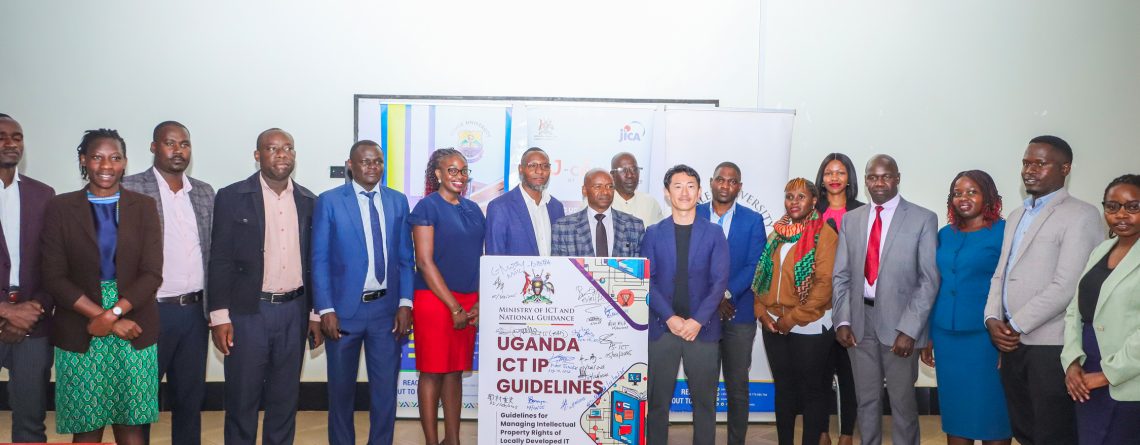
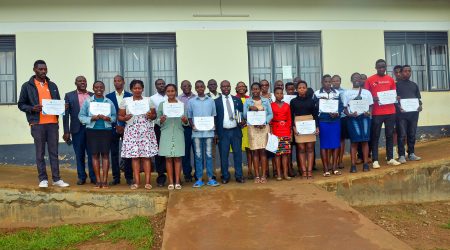

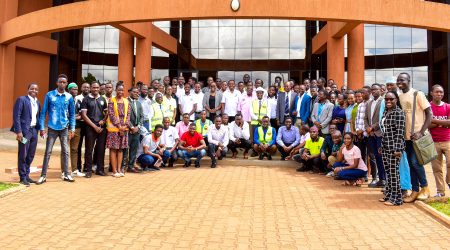
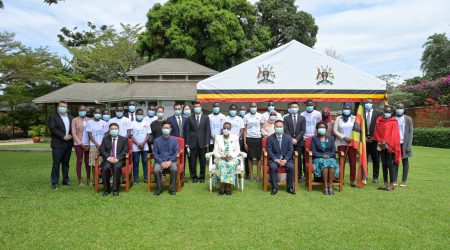





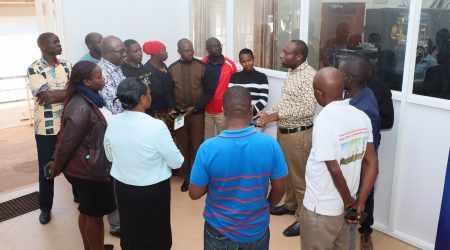
Leave a Reply